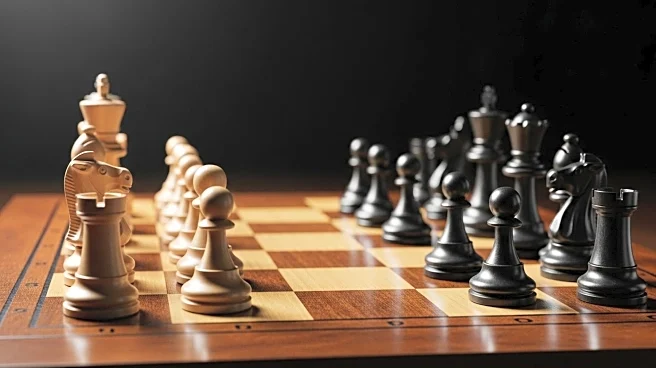What's Happening?
Christopher Rufo, a conservative activist known for his opposition to cancel culture, has recently adopted tactics similar to those he once criticized. Rufo has targeted journalist Doreen St. Félix for past tweets, sparking outrage and accusations of hypocrisy. This shift comes as Rufo argues for a new cultural hierarchy that expands acceptable discourse to the right. His actions reflect a broader trend among conservatives to engage in cancel culture tactics, which they previously denounced, as a means to reshape cultural norms and discourse.
Why It's Important?
Rufo's actions highlight a significant shift in the cultural and political landscape, where conservatives are increasingly adopting the tactics of cancel culture to advance their agendas. This development underscores the changing dynamics of the culture war, with both sides using similar strategies to influence public discourse and societal norms. The implications for U.S. society include a potential increase in polarization and the entrenchment of divisive tactics in political and cultural debates. Rufo's campaign also raises questions about the ethical considerations of using cancel culture tactics and the impact on free speech and open discourse.
What's Next?
As Rufo continues to engage in these tactics, it is likely that the debate over cancel culture will intensify, with potential repercussions for media and cultural institutions. The response from The New Yorker and other stakeholders may influence the direction of this discourse and the strategies employed by both conservative and progressive activists. Additionally, Rufo's actions may prompt discussions about the role of power and privilege in shaping cultural norms and the responsibilities of public figures in navigating these issues.
Beyond the Headlines
Rufo's campaign against St. Félix highlights the complexities of cancel culture and the challenges of navigating cultural and political discourse in a polarized environment. It raises questions about the balance between accountability and free expression, and the potential consequences of using cancel culture as a tool for political gain. The incident may also prompt broader reflections on the role of media and cultural institutions in shaping societal values and the impact of their actions on public trust and engagement.










